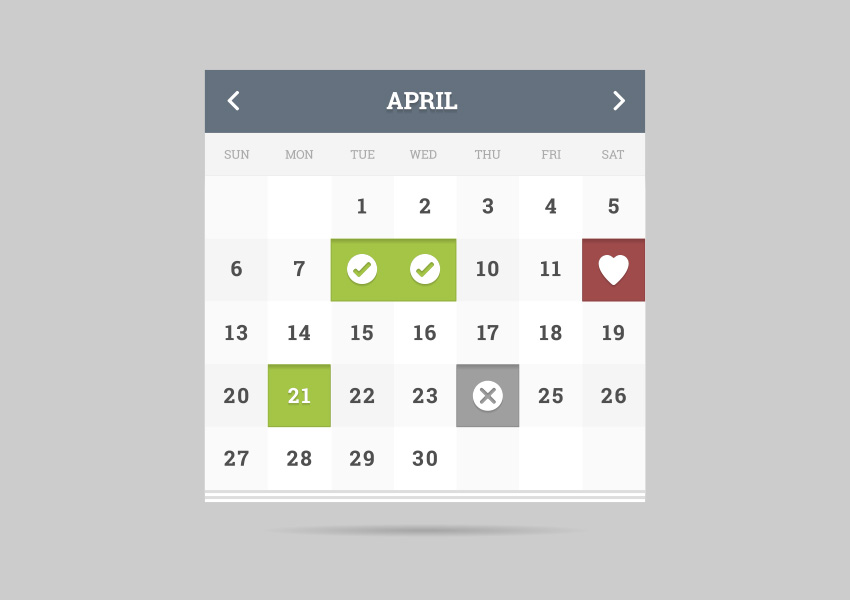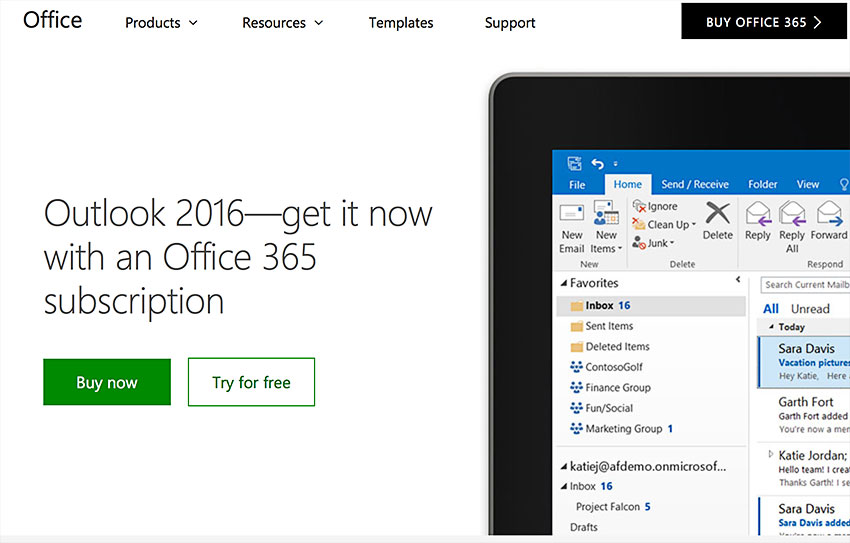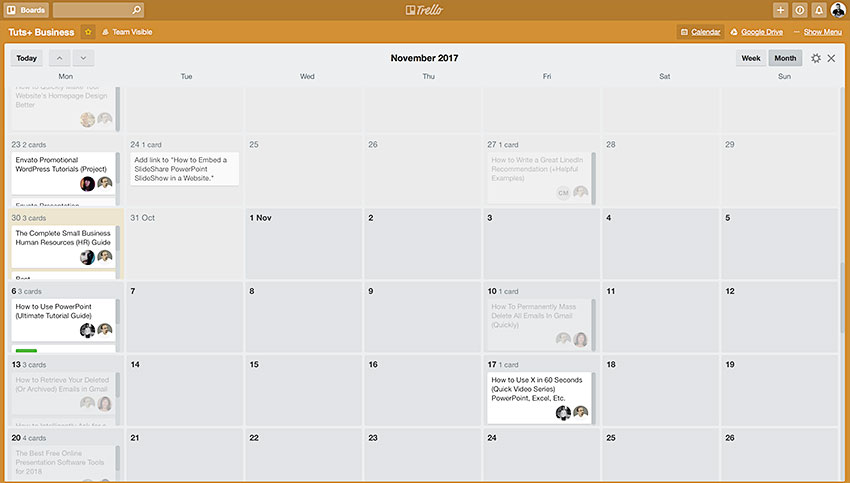An Interest In:
Web News this Week
- April 28, 2024
- April 27, 2024
- April 26, 2024
- April 25, 2024
- April 24, 2024
- April 23, 2024
- April 22, 2024
7 of the Best Shared Calendar Apps for Scheduling Online
A calendar is an incredibly important tool for any small business owner, freelancer, or entrepreneur. A well organised calendar is crucial for knowing where you need to be and what you need to be doing.
Unless you’re in an incredibly fast moving business, the odds are you’ll have to schedule some important calls days or even weeks in advance. You need a way to make sure that you remain free at the crucial times. It’s no good counting on your memory. This is where your calendar comes in.
By the same token, if someone is asking if you’re free to do something, you need a way to know whether or not you can commit. If you don’t have a calendar that blocks out all your events, you’re going to always live in fear that you’re accidentally double booked. Your biggest client will ring for a scheduled phone call right in the middle of your teleconference with your second biggest client!

Calendars can help in other smaller ways. If you like to meditate, blocking it off in your calendar for the first thing each day serves as a consistent reminder and stops you from scheduling something else during that important time. It’s the same with maintaining other good habits like going to the gym, batch processing your email, or getting an hour or two of uninterrupted work in at regular intervals.
While a solo calendar is obviously important, one underrated benefits of online calendars is that you can give other team members a running update on what you’re doing. If they can see your shared calendar (and you can see theirs) then they’ll know not to disturb you when you’re meditating. You’ll also know that Tim is free for half an hour just after midday and that’s probably a great time to have a quick word with him.
With all this in mind, we’re going to have a look at some of the best shared online calendar and scheduling apps available.
1. The Obvious Choice: Google Calendar

Google Calendar is the best shared calendar app online by default. It’s the go to. If you’re just looking for an online calendar, it’s the one to choose. There’s almost no reason not to.
With Google Calendar you can have separate calendars each in their own colour for all the different aspects of your life. You can have one for family stuff, one for work, another for daily reminders, and another for everyone’s birthdays.
You can share each of these calendars. You and your partner could share the business one. You can keep a public work calendar that everyone in the office sees and a private one that only you and your co-founder share online. There’s so much flexibility for you to use it how you like.
Google Calendar can also serve as the back end to any other calendar you want to use. You can use services like IFTTT to push your reminders, memos, or anything else to your Google Calendar. If you love how a particular iOS calendar app looks, it almost certainly syncs with Google.
Google Calendar is also entirely platform agnostic. You can access it from any web browser. If your team all operates on different devices, then you can use it safe in the knowledge that everyone will be able to get it to work.
To top it all off, Google Calendar is free as part of everyone’s Google Account. It’s also included in a Google Apps subscription so if you’re using that on your domain already to run your email, then you’re already paying for Google Calendar.
With all this going for it, Google Calendar is hard to beat.
2. The Business Choice: Microsoft’s Outlook Calendar

The big contender to Google’s calendar throne is Outlook. Microsoft’s business focus software package is firmly entrenched in a lot of large companies. While you can subscribe to Google Calendars from the Outlook app, if your team is required to use Microsoft’s offering for security or compliance reasons (or even personal choice) it’s probably better if you don’t.
Outlook’s calendar feature set is very similar to Google’s but it also goes further. It integrates with your email app so you can see them both together in one place.
Designed from the ground up for businesses, Outlook is great for more traditional tiered teams. It’s easy for managers to view everyone’s schedules, add events, and so on. People can have individual calendars, team calendars, organisation calendars, and more.
The only place where Outlook really loses out to Google Calendar is in the price. Outlook is included as part of Microsoft’s Office 365 subscriptions which start at $6.99/month/user. If your team is already subscribed to Office 365 because you use Microsoft’s other products, then this isn’t an issue. On the other hand, it’s a pretty steep price to pay for a new calendar app when there are good free alternatives out there.
3. The Mac Choice: Apple’s iCloud Calendar

Apple Calendar is a great calendar option hamstrung by one thing: it works best on macOS and iOS. While you can access iCloud calendars from the web and subscribe to them in other calendar apps, the experience isn’t as good as using Google Calendar.
Like many Apple products, iCloud Calendar shines when it’s fully integrated. Maps will automatically suggest directions based on where your next event is, everything you have to do that day is visible in the Today view, and so on. You can do this on a Mac, but you can’t on an Android phone or PC.
If your entire team is using Macs, then iCloud Calendar is a great option. Its features are broadly the same as Google Calendar; it’s a simple calendar app without too many frills.
On the other hand, if your team is using a range of different devices, then a good experience across all platforms is better than a great experience on one platform and an okay experience on all the others.
So Why Not One Of These?
When it comes down to it, Google Calendar, Outlook Calendar, and iCloud Calendar are on top for a reason. They’re all great calendar apps that are easily available.
Google Calendar and iCloud Calendars are free to everyone while Outlook Calendar is part of the post popular business app suite in the world. The odds are you’re already using one or more of these. Just setting up a Google or Apple account signs you up for their calendar.
Google, Microsoft, and Apple’s offerings are all flexible enough that you can probably turn them into the calendar app you need without too much hassle.
If you’re not going to use one of the top three options, you should probably have a reason. And it should be a good reason. Maybe you need something that’s more productivity driven or perhaps you want something better for scheduling meeting rooms?
Let’s look at some of the other calendar and scheduling app options out there:
More Online Shared Calendar App Options
Zoho Calendar - Sharable Online Calendar App

Zoho Apps are an alternative to Google Apps. They also offer email, word processing, spreadsheets, and of course, a calendar. The difference is that, unlike Google Apps, Zoho Apps is free to set up on your domain for up to 10 users. This means that it’s popular for small companies that want to use [email protected] email addresses.
If you’re using Zoho Apps, then for much the same reason as you’d use Outlook or iCloud Calendar, it’s probably worth your while checking out Zoho Calendar. It will integrate with everything else you’re doing.
Teamup - Sharable Group Online Calendar App

Unlike the other calendars on this list which are personal calendars you can share with other people, Teamup is designed from the ground up for groups. If you want an easy way to schedule meeting rooms, organise delivery trucks and out calls, schedule different crews, and basically do anything team related, it’s a great choice. It’s even used by NASA.
While there is a free Teamup plan, most teams are going to want the features, like password protection, that start with the $8/month (total, not per user) plan.
Trello - Popular Online Productivity and Scheduling App

Trello is one of our favourite project management tools. It’s what we use in our own editorial workflow. It’s a great way for teams to keep track of different tasks and projects.
While most teams use Trello as a sort of digital todo board, it can do a whole lot more. You can assign a due date to any Trello card. If you do that, you can then use Trello’s Calendar View which you can see above. You get a calendar layout with the cards sitting at the day that matches their due date.
Depending on what you need a calendar for, something like this might actually be the best solution. With Trello, people can collaborate and discuss tasks, assign todos, and track everything. If you need something that’s more of a tasks calendar than a strict organisational thing, it’s a great choice.
Basecamp - Great Online Productivity App

Basecamp is another tool we love at Tuts+. We use it to manage our courses workflow. It’s a bit more involved than Trello, with each project being given a lot greater weight than a card is in Trello.
Like Trello though, Basecamp has a well integrated calendar that makes it easy to keep on top of due dates, events, meetings, and so on.
While I wouldn’t recommend you choose Basecamp just for the calendar, if it’s already part of your workflow or you’re looking for a more involved project management tool as well, it’s the choice for you.
Wrapping Up
In reality, most people’s needs are met by either Google Calendar, Outlook, or iCloud Calendars. However, if your team needs something more niche, there are good options out there. For the most part calendars and scheduling aps come bundled as part of other services but there are a few standalone (but paid) options.
Discover more helpful business tools in these Envato Tuts+ articles:
 Productivity15 Business Productivity Apps to Work Better + Save Time
Productivity15 Business Productivity Apps to Work Better + Save Time Small BusinessThe Best Online Project Management Software for Small Business
Small BusinessThe Best Online Project Management Software for Small Business
What calendar app do you use? What features do you find most essential? Is sharing with team members online critical or is it more important to easily synch your calendar across your devices?
Original Link:
Freelance Switch
 FreelanceSwitch is a community of expert freelancers from around the world.
FreelanceSwitch is a community of expert freelancers from around the world.More About this Source Visit Freelance Switch


